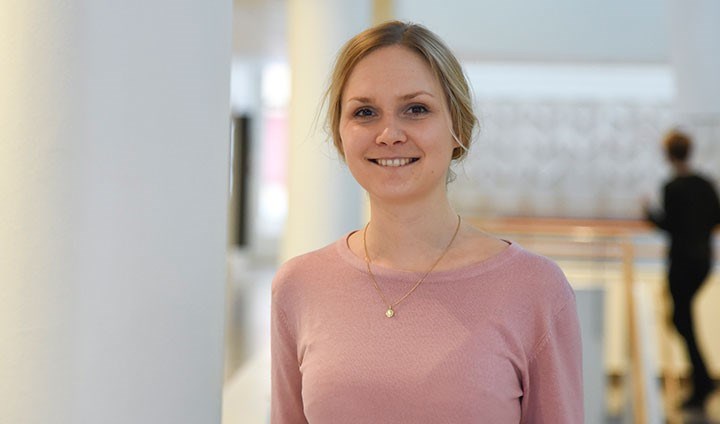What influences our choices in the grocery store?

She will research what influences us to choose – or not choose – sustainable, organic and healthy food. Carolin Zorell is one of the first postdoctoral fellows in Food and Health who has now arrived in Örebro.
This summer, Örebro University announced ten new positions within our strategic initiative Food and Health. Carolin Zorell was one of over 300 applicants, and she has just moved from Mannheim, Germany to Örebro.
“The project is perfect for me. I’ll have the opportunity to develop what I started in my thesis,” says Carolin Zorell.
Her doctoral thesis is about why people choose to buy or boycott various products or producers for political reasons, something that is shown to differ between countries.
“In Sweden, there is much confidence in the state as well as a strong sense of shared responsibility, which seems to be one explanation as to why so many are also political consumers.”
Being a political consumer means that you let political or ethical values influence which goods you buy – or do not buy. Many Swedes, for example, choose to buy Fairtrade or MSC labelled products. Research shows that it does make a difference.
Sweden at the top
“People are choosing to buy these products instead of those lacking this labelling, and this does force companies to change. In the beginning, there may be only a few such labelled products, but as time goes, more and more companies adapt to meet the requirements and to have their product approved.”
Sweden is at the top of the list over political consumption among European countries. In Germany, there is also a lot of interest, with a companies’ charity work or commitment to the environment playing a substantial role.
“Even though nothing may be shown on the products themselves, the message is still conveyed to customers, like through advertising. In one of my previous studies, NGOs confirmed that companies were seeking their collaboration/approaching them to work together, as they are very well aware of the importance of things like environmental work,” said Carolin Zorell.
Consumption influenced by family and friends
"Towards the end of my thesis work, I became increasingly interested in how psychological processes and social contexts influence attitudes and behaviour. And that’s what I’m planning of developing now.”
She plans to combine survey studies with experiments that may reveal how people act in different situations. She wants to find out how our consumption is influenced by the people around us, family and friends, but also role models such as influencers.
“If we know who is inspiring others, then we can use their help to change buying behaviours. I will also examine what role politics might play in that and how it might facilitate change.”
Although she has only been in Örebro a couple of weeks, she is enjoying it and is happy to be here.
"Magnus Boström, who is one of my supervisors here, was an inspiration already when I was working on my dissertation. Otherwise, I didn't know much about Örebro before arriving here."
“It’s a very nice and flexible workplace. And it’s not just the project itself that is perfect for me, but also the university’s Food and Health initiative, which is interdisciplinary. I hope to be able to learn from researchers in other fields and find exciting collaborations. It can enrich me both as a person – and my research.”
Text and photo: Linda Harradine
Translation: Jerry Gray
